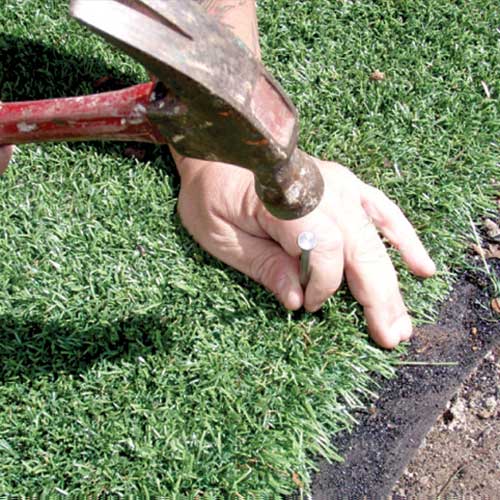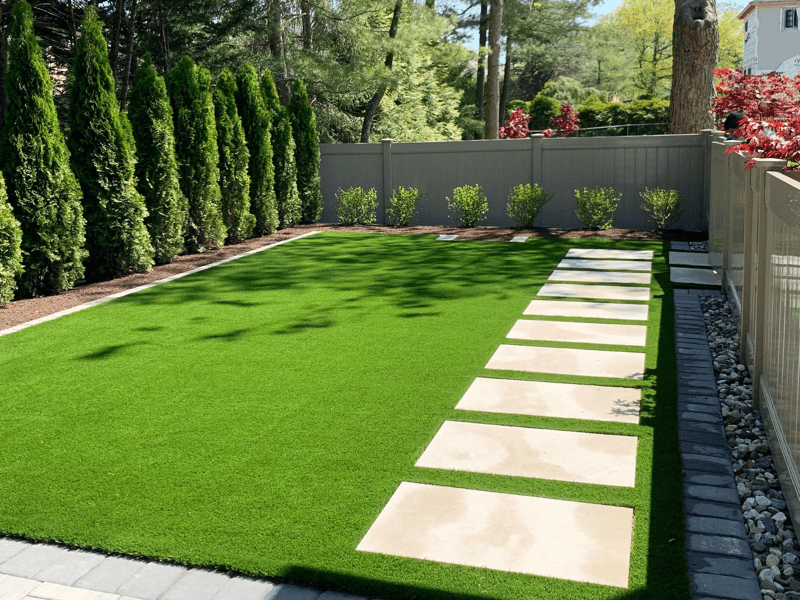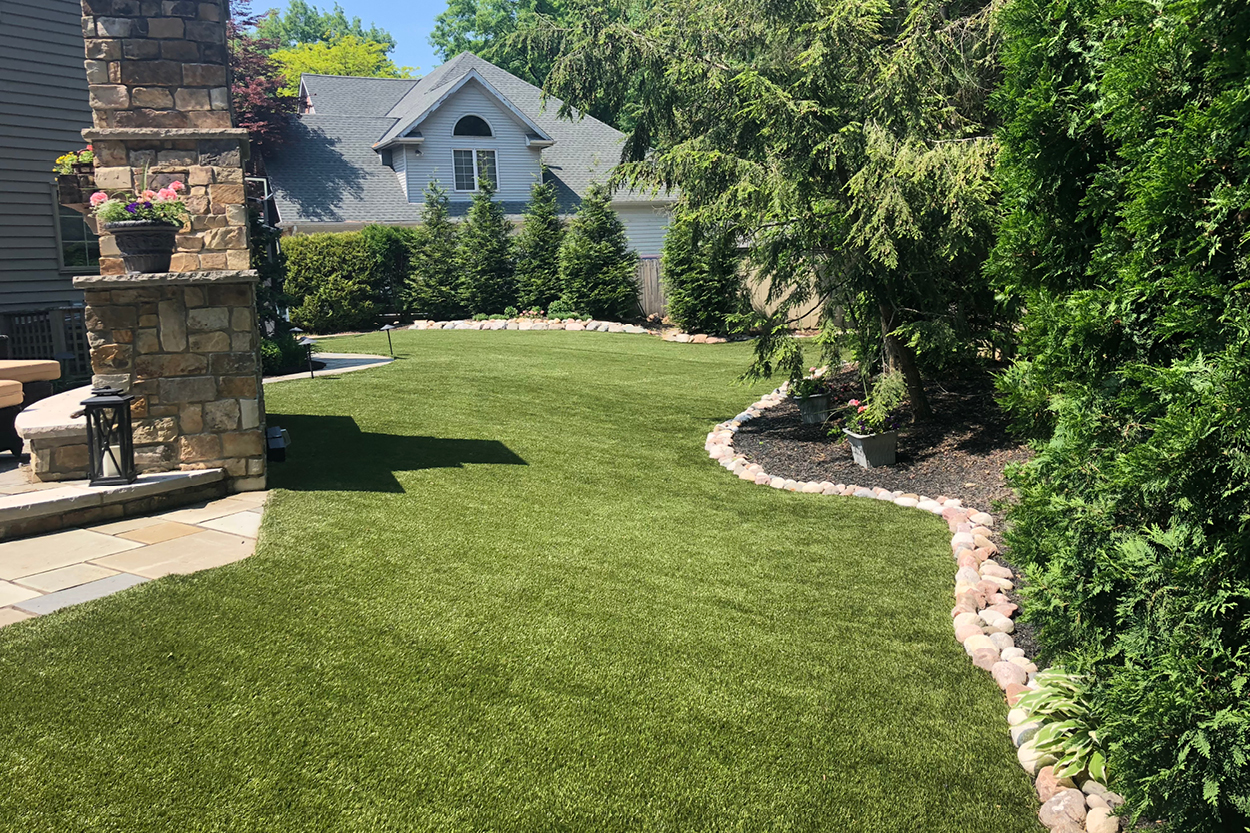Long-Lasting Arizona Artificial Turf for Residential and Business Applications
Long-Lasting Arizona Artificial Turf for Residential and Business Applications
Blog Article
Look Into the Environmental Advantages of Opting for Synthetic Grass Solutions
The adoption of synthetic grass remedies presents a compelling chance to resolve pushing ecological obstacles. By dramatically minimizing water use and minimizing the application of unsafe chemicals, these options not just promote lasting landscaping but likewise safeguard neighborhood ecosystems. The reduced carbon footprint connected with lowered upkeep activities contributes to a much more sustainable strategy to land administration. However, the implications of these advantages prolong past plain conservation initiatives, raising questions regarding their long-lasting effect on environment conservation and total environmental equilibrium. Discovering these dimensions discloses an intricate interplay worth considering.
Water Conservation Benefits
One of the most substantial advantages of synthetic lawn is its ability to conserve water. In comparison, synthetic grass does not require watering, considerably minimizing the general demand for water resources.
By removing the requirement for normal watering, fabricated turf adds to lasting landscape practices and aids minimize the ecological influence of excessive water usage. The preservation of water expands to the reduction of drainage, which can lead to dirt erosion and river contamination.
Furthermore, the installment of synthetic grass enables property owners and communities to assign water resources a lot more effectively, focusing on necessary usages such as drinking water and farming. The change towards synthetic grass not just promotes accountable water use yet also lines up with more comprehensive ecological goals targeted at preserving natural deposits.
As areas progressively prioritize sustainability, the water preservation advantages of synthetic grass provide an engaging instance for its fostering in household and industrial landscape design tasks.
Lowered Chemical Use
The transition to synthetic grass substantially decreases the dependence on chemical treatments commonly utilized in natural turf upkeep. Standard grass administration usually involves the application of plant foods, chemicals, and herbicides to promote development and control insects. These chemicals can posture dangers to human wellness, regional wild animals, and the atmosphere, adding to dirt and water contamination.
In comparison, synthetic turf gets rid of the need for these unsafe compounds. By minimizing the release of synthetic substances right into the ecosystem, fabricated turf promotes healthier soil and water systems.
Furthermore, the absence of chemical drainage related to artificial grass installments helps shield regional waterways from contamination, sustaining marine life and preserving biodiversity. Artificial turf companies phoenix. As communities significantly prioritize lasting practices, choosing synthetic grass provides a feasible service that aligns with ecological preservation goals. Through this shift, property owners can appreciate lavish green spaces without endangering environmental health and wellness, leading the method for an extra lasting future
Lower Carbon Footprint

Additionally, the setup of synthetic grass can result in substantial water conservation. All-natural lawns require substantial quantities of water for watering, which not just contributes to the carbon impact related to water removal and therapy however additionally pressures regional water sources. In comparison, fabricated turf requires very little upkeep, calling for no watering, thereby considerably reducing water use and its associated energy prices.
In addition, the durability of synthetic grass contributes to its reduced carbon impact. With a life expectancy of approximately 15 years or even more, the requirement for regular replacements is lessened, resulting in less waste additional reading and lower power intake in production and taking care of traditional lawn choices. Generally, synthetic grass offers a lasting alternative for eco aware landscaping.
Habitat Conservation
Environment preservation is a vital consideration in the argument over landscape design options, particularly when comparing artificial lawn to natural grass. Natural turf yards usually need comprehensive maintenance, including using pesticides, herbicides, and fertilizers, which can detrimentally influence local ecological communities. These chemicals can seep into the dirt and rivers, damaging native vegetation and animals and disrupting regional habitats.
In contrast, synthetic lawn provides a possibility to reduce the environmental footprint of landscape design. By see here now choosing for artificial turf, home owners can minimize the disruption of all-natural environments connected with standard yard care techniques. Fabricated lawn eliminates the demand for dangerous chemicals, therefore shielding neighboring wild animals and preserving the integrity of bordering environments. Moreover, the installation of man-made turf can cause the conversion of previous turf areas into even more biodiverse landscapes, such as pollinator gardens or native plant areas, which can support regional wild animals.
Inevitably, the shift to synthetic grass not only preserves water and minimizes upkeep initiatives yet additionally cultivates a much more harmonious relationship in between human tasks and the all-natural environment, advertising habitat conservation while doing so.
Long-Term Sustainability
Long-term sustainability is a crucial consider evaluating the benefits of man-made turf over traditional turf lawns. One of one of the most significant advantages of synthetic grass is its resilience; it can last up to 15-20 years with minimal upkeep, whereas all-natural turf requires constant reseeding and replacement. This durability lowers the demand for consistent sources, such as water, fertilizers, and pesticides, which are crucial for keeping a healthy grass yard.
Furthermore, synthetic grass adds to a decrease in carbon emissions linked with lawn treatment tools. Traditional lawns frequently call for gas-powered mowers, trimmers, and blowers, all of which add to air pollution. Artificial turf companies phoenix. On the other hand, synthetic grass gets rid of the requirement for such tools, promoting a cleaner atmosphere
Furthermore, the production of synthetic grass significantly uses recycled materials, improving its sustainability account. As manufacturers take on environment-friendly practices, the ecological footprint of synthetic grass proceeds to decrease.

Verdict
The fostering of synthetic turf options presents considerable ecological benefits, consisting of substantial water conservation, lowered dependence on unsafe chemicals, and a lower carbon impact. In addition, synthetic grass help in maintaining natural habitats by decreasing land disruption and promoting lasting sustainability via using long lasting materials. Collectively, these aspects emphasize the potential of artificial websites turf to contribute positively to environmental wellness and offer a sensible choice to conventional landscaping practices in a progressively resource-conscious world.
In contrast, fabricated lawn does not need watering, substantially decreasing the total demand for water resources. By decreasing the launch of synthetic compounds right into the ecosystem, artificial turf advertises healthier soil and water systems.
Moreover, the installment of man-made turf can result in significant water preservation. In comparison, fabricated turf requires very little upkeep, needing no watering, consequently considerably minimizing water use and its connected power prices.

Report this page